Gone are the days when a semi-professional rugby player – or even a full-time professional at one of the smaller unions – can earn a decent living while competing in South Africa. The Covid-19 pandemic has exacerbated the financial situation to the point where many outside Springbok and franchise circles have been forced to make a choice: find a paying opportunity overseas or find another career.
Neither the Southern Kings nor one of the franchise’s feeder teams, Eastern Province, will compete again in 2020 and, as a result, players and coaches have taken to social media to appeal for financial assistance. It remains to be seen where these players and coaches will wash up in 2021. The other South African franchises remain well stocked and – despite what some may believe – there are limited opportunities for foreigners at top clubs across western Europe, the UK and Japan.
There is some hope, though. With the Russian government investing in the local game and ultimately bidding to host the 2027 World Cup, and with local administrators and coaches in the market for hard-nosed South Africans following the Springboks’ title success in 2019, a gig in Kazan or even in the heart of Siberia – as several players and coaches tell The XV – could be a potential stepping-stone to greater things.
More than 60 South Africans are spread across the Russian club structures. The numbers will rise as the recruitment drive gathers momentum and as more and more players realise the benefits of heading east.
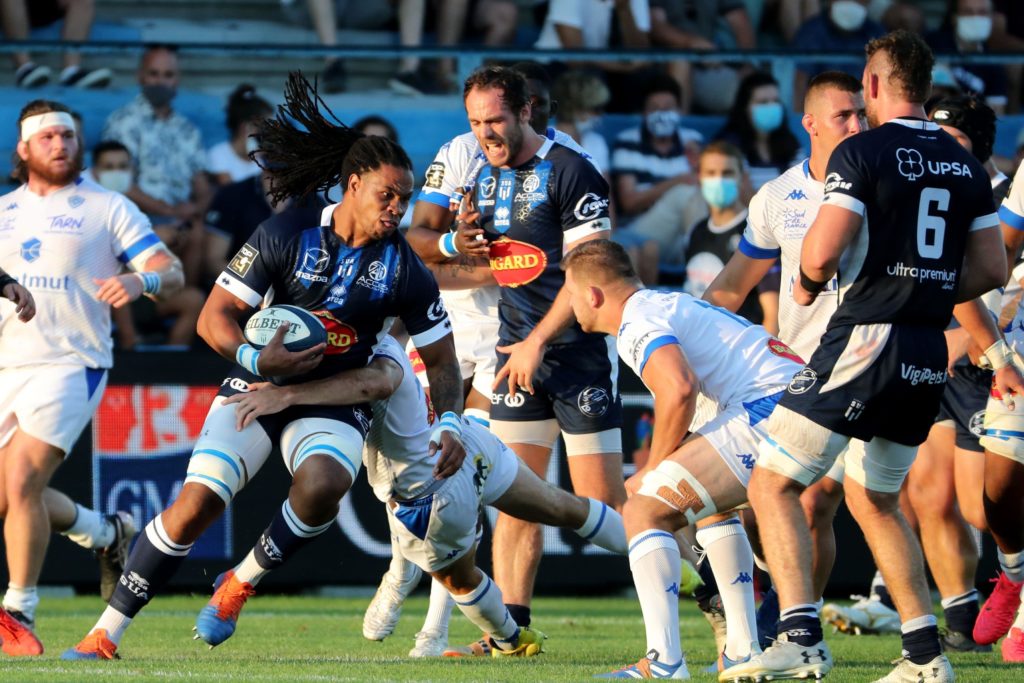
Some of these players will have the chance to compete in the European Challenge Cup and attract the interest of bigger clubs. Jeremy Jordaan – the 29-year-old lock who spent much of his career in the Currie Cup First Division – played 23 times for Enisei-STM before receiving an offer to represent Agen in France.
Still sceptical? You’re not alone.
I kept repeating, ‘Russia?! Russia?!’ because I just couldn’t believe that it was a realistic option… and that was before I was told the club was in the middle of Siberia.
Enisei-STM assistant coach Rynhardt van As
Former South Western Districts coach Rynhardt van As didn’t know what to think when a friend first called him at the beginning of 2019 about a job opportunity at Enisei.
“I kept repeating, ‘Russia?! Russia?!’ because I just couldn’t believe that it was a realistic option,” said Van As. “He just laughed and kept saying, ‘Yes! Yes! Russia! Russia!’ – and that was before he told me the club was in the middle of Siberia.”
Van As coached the SWD Eagles to the Currie Cup First Division title in 2018. The financial situation at the union deteriorated thereafter, and the players and coaches were told that their contracts would not be renewed.
Following the offer of an assistant-coach post at Enisei, Van As investigated the structures in the country. He was surprised to discover that so many South Africans were already plying their trade in Russia.
Former Springbok wing Bjorn Basson played for Enisei last season. The Blitzbok and Pumas No8 Carel du Preez, Falcons flanker Friedle Olivier and Bulls wing Earll Dowrie have since joined the foreign contingent at the Krasnoyarsk-based club.
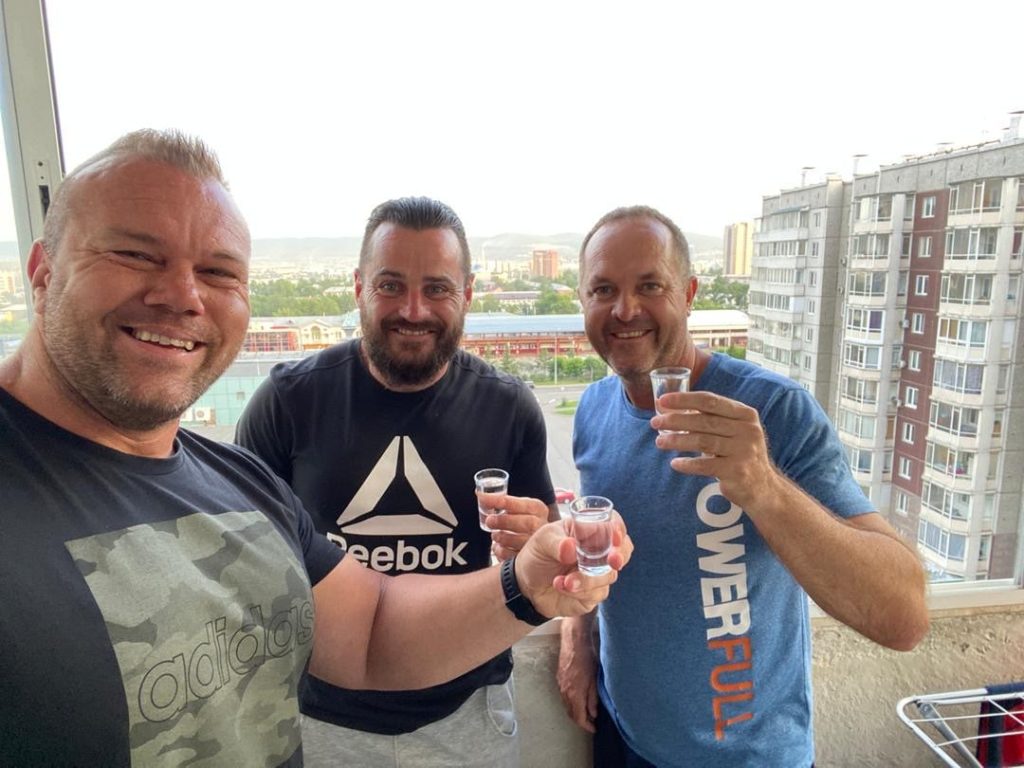
Strela-Agro boast eight South Africans, including former Junior Boks and Bulls centre Franco Naude. Kings prop Martin Dreyer is part of an equally sizeable group at Slava Moscow. VVA Saracens is home to other expats such as Kings scrum-half Leighton Eksteen.
Several other South African coaches have found a place in Russia. JP Nel was part of the Bulls side who won three Super Rugby titles and several Currie Cup trophies in the mid-to-late 2000s. He worked under Lyn Jones as an assistant coach in Namibia before pursuing an opportunity with Strela in 2019. At that stage, the Kazan-based club were yet to qualify for the premier league.
“You have to follow the opportunities as a player or coach,” said Nel from his home in Kazan, a city he proudly describes as the sporting capital of Russia. ‘They had big plans for the team and the league as a whole. One thing led to another and I decided to take the plunge.”
Nel steered Strela to the division title in his first season at the helm. Shortly after his side secured victory in the final, he called former Bulls team-mate Jaco Engels – who had worked with Jones and Nel in Namibia. Nel asked Engels if he would keep his promise to fly over now that Strela had secured promotion.
Engels was living in Namibia at the time, where the temperature ranged between 30C-35C. When he touched down in Kazan, a city located some 700km east of Moscow, the cold reality of the decision set in.
Going outside at that time of the year is an experience. Early into my stint with the club, I sprinted from one of the indoor facilities to another building at the club, wearing nothing but a pair of shorts and a T-shirt. It was -20C. The locals thought I was crazy
Jaco Engels, former Blue Bulls
“It was a 60-degree swing in terms of temperature difference,” said Engels with a laugh. “It took some getting used to.
“We play most of the season in the summer months. Come winter, we’re training indoors, and it’s possible to train in summer gear due to the underfloor heating.
“Going outside at that time of the year is an experience. Early into my stint with the club, I sprinted from one of the indoor facilities to another building at the club, wearing nothing but a pair of shorts and a T-shirt. It was -20C. The locals thought I was crazy.”
Nel says his mates back in South Africa still find it hard to believe that he’s coaching in Russia. “Everybody thinks that we’re buried under the snow for 12 months of the year. The reality is that the temperature in Kazan can rise to the mid-30s in summer,” he said.
“In winter, however, when the temperature drops to -20C… that’s when you’re challenged. It has been an adjustment for my wife and two kids, because you can’t really go out as much during that time. Being cooped up indoors takes some getting used to.”
Nel and Engels do their best to stay in touch with Van As, although it says something for the size of the country and it’s logistical challenges that the latter lives four time zones away in Krasnoyarsk. Deep in Siberia, the mercury can plummet to -45C in winter.
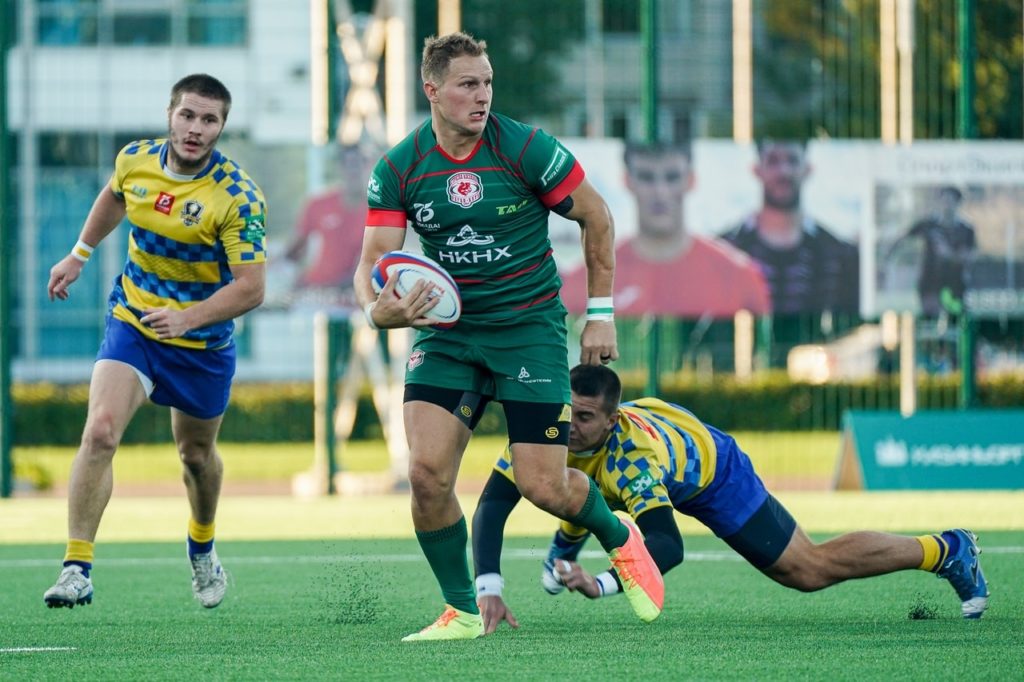
It’s a long way outside the comfort zone for those accustomed to fair weather and open spaces the year round. And yet, players and coaches interviewed by The XV have grown to enjoy the Russian culture and lifestyle, and have reiterated that an opportunity in this far-flung corner of the rugby world should not be underestimated.
Van As holds up Jordaan as an example; the player who earned a contract with Agen in France on the back of a season with Enisei in Krasnoyarsk. “That’s part of the attraction of playing in Russia, as it can provide South Africans with a pathway to Europe,” he said.
“The standards on this side are high and the set-up is professional. The money is good, and extras such as medical aid and tax are covered. If you come over here with a positive attitude and embrace challenges such as the Russian language and the cold, you will have a terrific experience.
“It’s getting more difficult for most South African players to make the top grade. I often speak to coaches back home. I’ve heard that they’re looking at reducing the franchises from six to four [with the Cheetahs as well as the Kings set to drop out of the top echelon] and squad sizes have been slashed across the country.
“More players are looking for opportunities overseas. Some are looking at Russia as the springboard. The number of South Africans in this country will only grow in the years to come.”
Opportunities for professional rugby players in South Africa have become scarce. Players who aren’t seen as the cream of the crop, like myself, have to weigh up their options.
Ex-Pumas loose-forward Carel du Preez
Du Preez played for the Blitzboks – the South African national sevens team – between 2015 and 2016. He has since reverted to the 15-man game and was with the Pumas in the Currie Cup First Division until recently. The 27-year-old loose-forward joined Enisei earlier this year and he speaks about the move as a career-saver.
“Things weren’t looking particularly good for me at the Pumas. A lot of players are in a similar position,” he said. “The smaller unions in South Africa have been hammered financially. They can’t pay their players that well. You can’t survive on a salary of R15,000 to R20,000 [£700 to £900] if you’re a professional rugby player. There’s so much you need in terms of nutrition and medical care, and that’s before you start thinking about all your other living expenses.
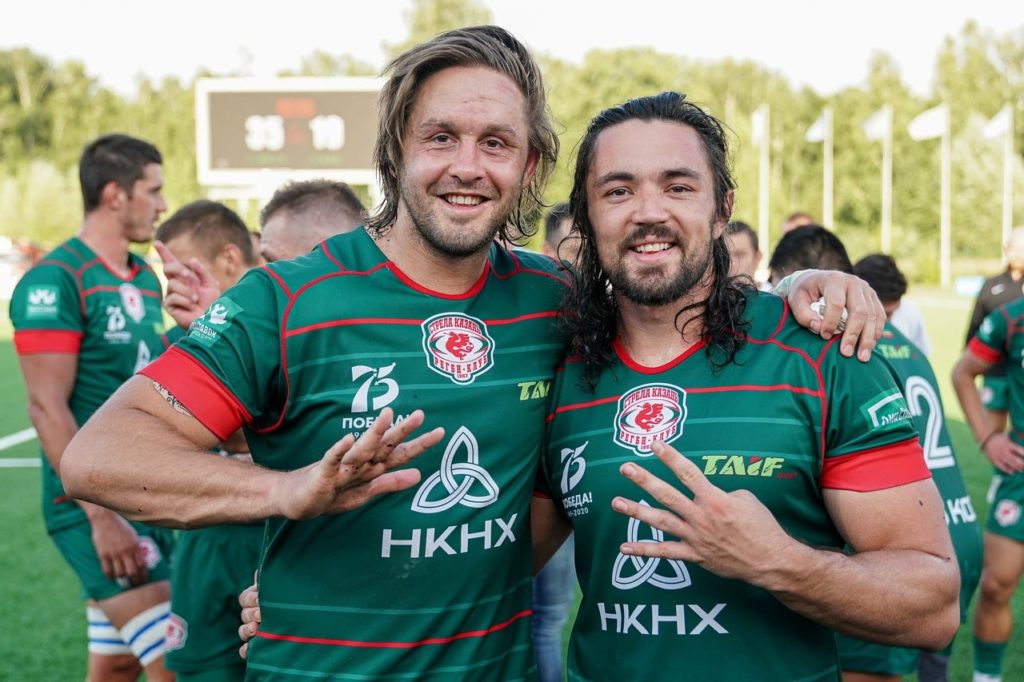
“Opportunities for professional rugby players in South Africa have become scarce. Players who aren’t seen as the cream of the crop, like myself, have to weigh up their options.
“I see the Russian opportunity as a back door to western Europe, even though I’m committed to Enisei and want to help rugby in this country grow. It’s a better chance than what we have playing for a smaller union in South Africa. It may also be better for some players who don’t feature regularly at Super Rugby level. Unless you’re a top Super Rugby player who plays a certain number of games, you aren’t really in the frame for an overseas move to one of the big French or English clubs.
“Now that I’m over here, I’ll have the chance to face teams like Worcester Warriors, the Dragons, Castres and others. I’ll have the chance to show the world what I can do.”
When you speak to other South African coaches involved in England, France, Japan and even in the USA, some believe that the total number of South Africans abroad is in excess of 500. The growing number of players opting to play in countries in Russia should not be dismissed.
Russia is no place for prima donnas. Some players throw their toys when things don’t go their way. Over here, you have to work hard to earn respect.
Ex-Namibia prop Jaco Engels
“Russia will become a more attractive option as the opportunities dry up in South Africa,” said Engels. “Japan is full. They can’t take any more players. Many players are trying to get into the second and third divisions in France, but there are limitations there too. South Africans may well give Russia a try, as it’s an environment suited to their natural style of play and their mentality.”
Engels goes on to paint a picture of a typical Russian player: big, tough and unafraid. South Africans that share these physical and mental qualities have been warmly embraced by the local communities.
“Russia is no place for prima donnas,” he says. “Some players throw their toys when things don’t go their way. Over here, you have to work hard to earn respect.
“Many of the players had hard childhoods. They view rugby as a battle. There are some physical monsters over here… and there is no fear in them.
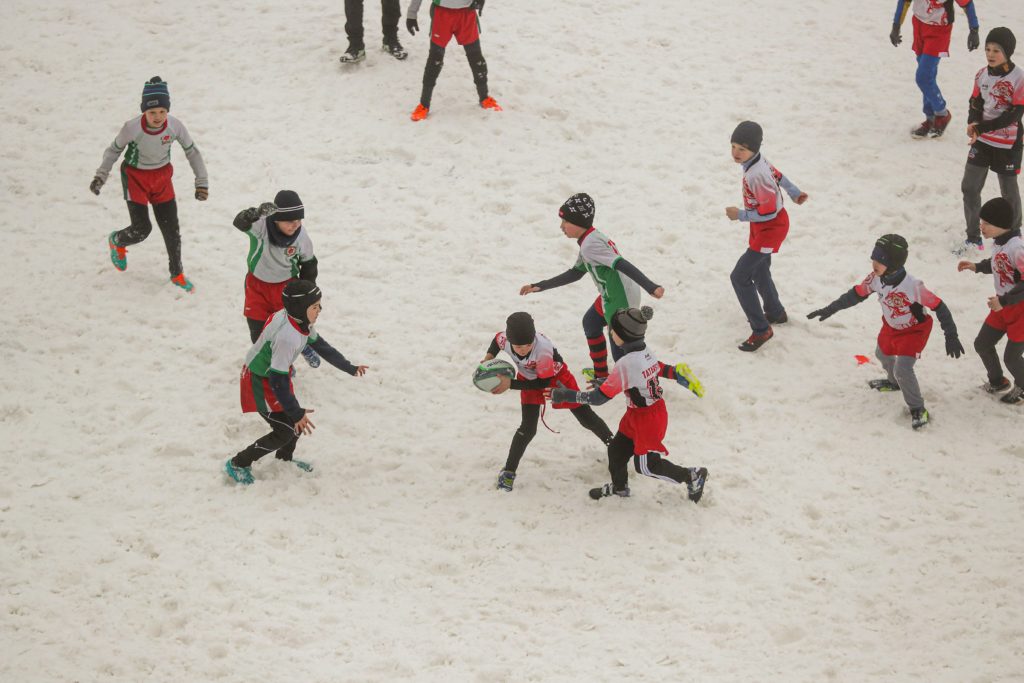
“They fly into each other during matches. The games are played at a lower tempo, with less ball in play than what we see in the Currie Cup or Super Rugby. There’s a big emphasis on the contest at the set-pieces and breakdowns, as is the case in other parts of Europe. The league is full of Georgians. Massive men. The scrum is a big battle. The maul is a bit of a free-for-all. They just love the contact.
“If you’re talking about the mentality of the local players, the term we use is ‘sobaka’, which means ‘dog’ in Russian. You need to be a mongrel to survive these battles. As a foreigner, you can’t come over here and think that you’ll be a superstar. You’ll get sorted out quickly.”
Du Preez is an intimidating specimen at 6ft 5in and 17st 5lb. And yet, as the player himself explains, individuals are judged by their actions rather than their appearance.
“The Russians respect us. They saw what the Boks did last year at the World Cup.,” he said, “They’ve seen what some of the South Africans have done in the local Russian league. When you arrive, however, the onus is on you to live up to the hype.”
If you aren’t well known in South Africa, you’re going to struggle to make ends meet. So if you get an offer to play the game you love and get paid for it – you must grab it with both hands.
Former Bulls wing Earll Dowrie
Dowrie was one of the top point-scorers in the 2018 SuperSport Challenge – the second-tier tournament that typically runs at the same time as the Super Rugby competition. The 22-year-old hopes that a stint with Enisei will launch his career.
“If you aren’t well known in South Africa and you aren’t getting regular opportunities at Super Rugby, Pro14 or even Currie Cup level, you’re going to struggle to make ends meet as a player. So if you get an offer to play the game you love and get paid for it – you must grab it with both hands,” Dowrie says.
“I still have rugby mates asking me what it’s like in Russia, because they’re skeptical. I’m committed to making the most of this opportunity. I’m not sure where it may lead.”
Some of the players may look to qualify for the Russian national team over the next five years. That will put them in line to feature at the 2027 World Cup – a tournament that could be staged in Russia if frontrunners Australia don’t win the bid.
“It’s simple, every player wants to play international rugby,” said Engels. “If you can’t play for the Boks, you will look for opportunities at other teams. That’s how it was for me after I went on to play Test rugby for Namibia.”
The Russian federation met earlier this year to approve the contracting of two foreigners under the age of 21 at each club. In five years, these players will be eligible for the national side. The more senior South African players may also feature at Test level in the future.
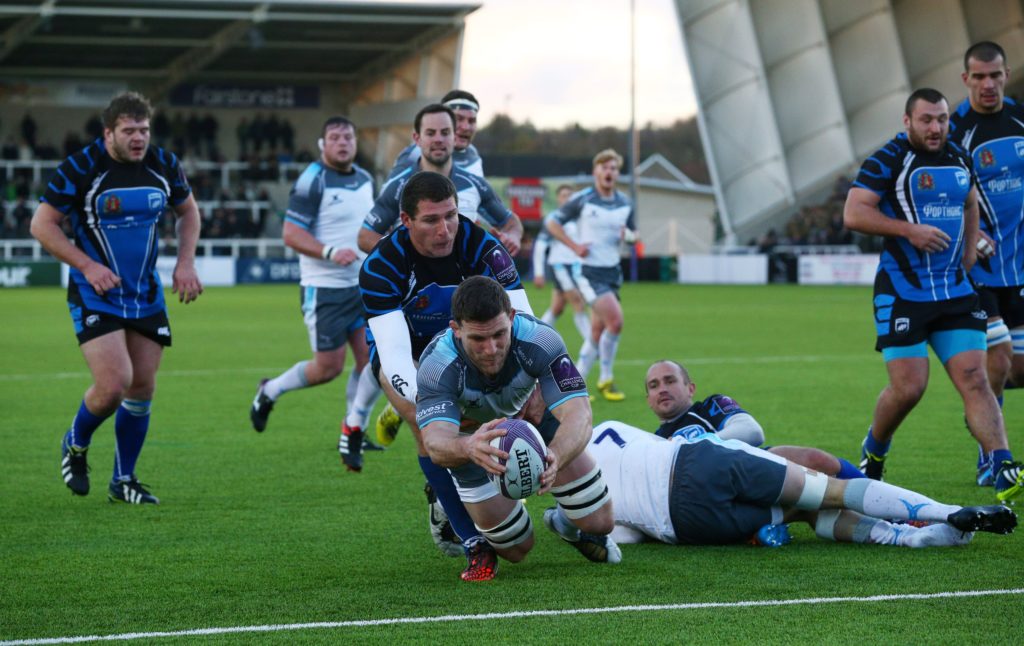
“Each club are allowed eight foreigners,” said Nel. “In the past, Russian teams would fill this quota with Georgians, as Georgia boast a number of good players who already speak the language.
“Lately, we’ve seen more South Africans occupying these slots. We have eight South Africans at Strela. I hear that you may be able to pick 10 foreigners in the future – and that’s excluding the two Under-21s earmarked for development. There are plans to expand the top competition from 10 teams to 12.
“I played club rugby in Japan towards the end of my career. I saw how they recruited a raft of foreigners at the beginning to raise the standard and to grow the game in the country ahead of the 2019 World Cup.
“Russia is trying to achieve something similar. It’s a developing sport in this part of the world and they’re determined to make a success of it.”
It remains to be seen whether rugby in Russia will grow to emulate the game in Japan. The Top League continues to attract some of the biggest names in the sport, and the progress of the Japanese national side was certainly evident when they won all four of their pool matches – including fixtures against Ireland and Scotland – at the 2019 World Cup.
What does seem certain, however, is that more South Africans will join the Russian ranks in the coming years as the opportunities in the Republic dry up. The determination of these players to succeed may boost the standard of the game in the east and – as has been the case in Europe, the UK and Japan in the past – South Africa’s loss will be another nation’s gain.
If you’ve enjoyed this article, please share it with friends or on social media. We rely solely on new subscribers to fund high-quality journalism and appreciate you sharing this so we can continue to grow, produce more quality content and support our writers.


Comments
Join free and tell us what you really think!
Sign up for free